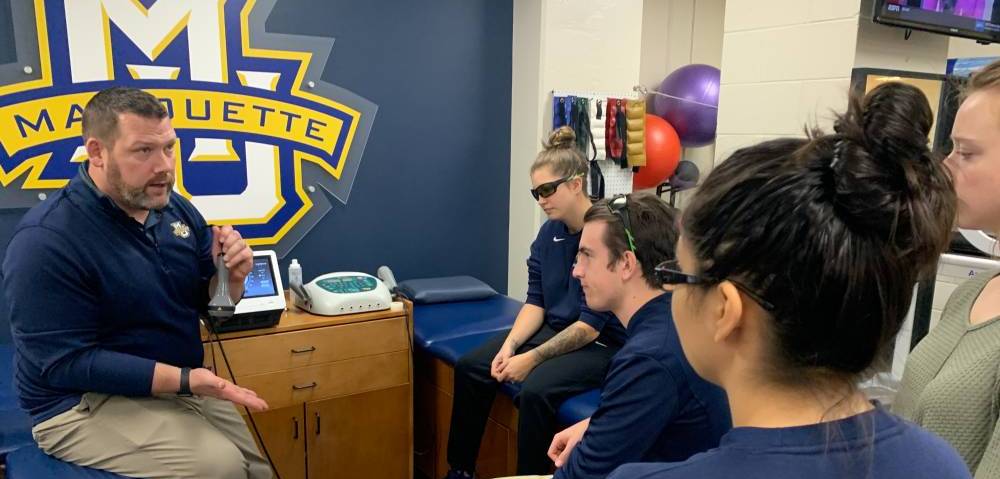The master's degree program in athletic training is committed to providing a generalist athletic training education to qualified students who have completed a rigorous blend of humanities, social science, and basic science course work. The goal of the curriculum is to develop the Jesuit ideals of cura personalis, care for the total person, and men and women for others, and to integrate these ideals into the delivery of care.
The teaching-learning process is recognized as a dynamic interaction of shared responsibility among the academic faculty, clinical faculty and students. The department supports the educational view that students learn in a multitude of ways, necessitating a variety of learning experiences. These experiences are important for the development of a life-long autonomous learner who is self-motivated, self-directed and able to construct knowledge, not just absorb it. Faculty members are resources and role models in the development of these traits.
Each faculty member accepts the responsibility of being a role model by maintaining personal clinical competence, providing quality instruction, contributing to the general body of knowledge, showing professionalism, respecting the dignity of others and being advocates for patient and professional causes. Finally, they will help students to become educated members of society, active members of their profession, and role models for peers and future athletic trainers.

